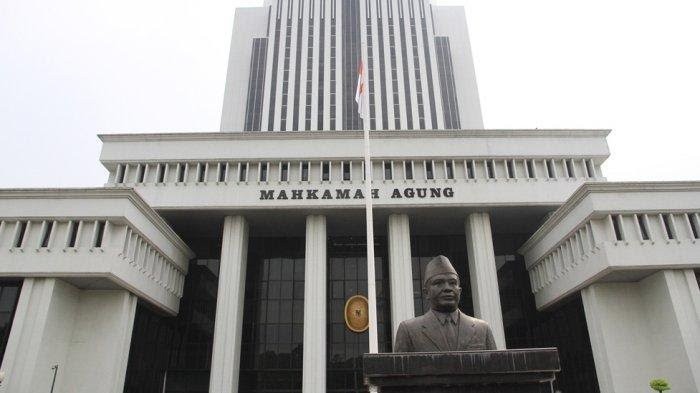Popular Reads
Top Results
Can't find what you're looking for?
View all search resultsPopular Reads
Top Results
Can't find what you're looking for?
View all search resultsSearch for new Supreme Court judges begins under strict health protocols
Change text size
Gift Premium Articles
to Anyone
T
he Judicial Commission (KY) began its search for a new Supreme Court justice and eight ad hoc judges on Friday, amid the COVID-19 outbreak in Indonesia.
This year, justices will be vetted to fill one vacant position in the Supreme Court’s state administrative chamber that focuses on settling final appeals relating to tax dispute cases. An additional justice with a broad knowledge of tax law is needed because the court currently has only one justice who specializes in this area.
The commission will also select two ad hoc judges specializing in industrial relations, who will work with the current six judges and help the Supreme Court in handling cases related to labor disputes, as well as six ad hoc judges specializing in corruption matters to replace six retiring judges.
The commission has about five months to complete the selection process before submitting the shortlisted names to the House of Representatives for approval on Dec. 14.
KY commissioner for judge recruitment Aidul Fitriciada Azhari said that despite needing to select additional Supreme Court justices and ad hoc judges, the commission would focus on quality over quantity.
“Therefore, we need to conduct a set of thorough assessments to select competent names, so that the House can approve our nominees,” Aidul said on Friday, urging individuals interested in applying to register via the commission's website before the end of July.
Read also: Supreme Court inundated with cases amid shortage of justices
A series of assessments, interviews with a panel of KY members and independent experts and background checks will begin on Aug. 12 and are scheduled to be finished on Dec. 11.
This year’s selection process will be held in compliance with strict health protocols and physical distancing measures. Aidul said these hurdles would make the process more difficult, as some selection processes normally required face-to-face interactions, such as candidate interviews and background checks, which require members of the KY selection panel to visit the candidates’ previous workplaces and interview people who could speak to the candidates' track records.
The outbreak, Aidul said, was also the reason behind the commission’s decision to recruit only nine justices instead of 16, as was previously requested by the Supreme Court in a letter dated April 30.
In the letter, the court asked the commission to select nine justices and six ad hoc judges, two of whom would be assigned to its civil chamber and four to its criminal chamber.
“But we have held three meetings with the court in the past two months and they accept the fact that conducting the selection process during the outbreak is going to be difficult,” Aidul said. “The court, however, is confident it can manage its workload with the current number of judges while we focus on recruiting new judges.”
The country’s top court had previously said it was overwhelmed by the massive number of cases it needed to process amid a shortage of justices.
It produced 20,058 rulings in 2019 compared to 17,638 in 2018, lifting its productivity rate to almost 99 percent from 95 percent the preceding year. Ninety-six percent, or more than 19,000, of the rulings were made in less than three months from the time the cases were received by the court.
Given the lack of justices, the court has described this as an accomplishment, although it has faced criticism over inconsistent rulings and concerns the rulings may have been compromised to meet productivity targets.
Read also: KPK investigation exposes corruption in Supreme Court
The country’s top court currently has 47 justices after inaugurating five new judges in March and losing a justice who passed away in the same month – far below the maximum 60 justices allowed under the 2009 Supreme Court Law. The court also employs 14 ad hoc judges.
Liza Farihah of Indonesian Institute for Independent Judiciary (LeIP) said the KY should seek candidates who could reform the court, which has come under scrutiny following the recent arrest of former Supreme Court secretary Nurhadi on suspicions of corruption.
Activist M. Rizaldi from the University of Indonesia’s Judicial Watch Society (MaPPI) said the commission should look for candidates with the most expertise and talent, clean track records and a broad understanding of the importance and role of the court.










